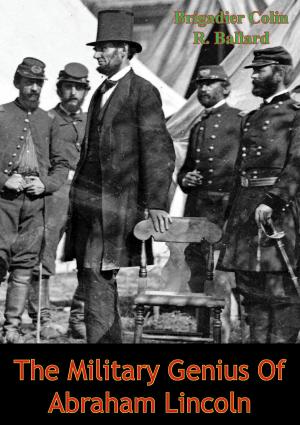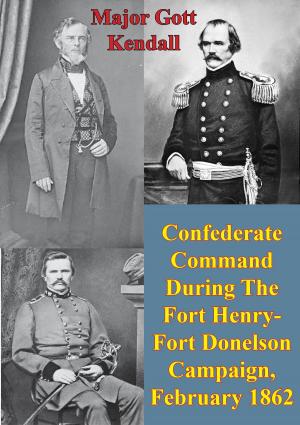Shiloh: A Case Study In Surprise
Nonfiction, History, Modern, 19th Century, Americas, United States, Civil War Period (1850-1877), Military| Author: | Major William J. McCaffrey | ISBN: | 9781786253026 |
| Publisher: | Golden Springs Publishing | Publication: | November 6, 2015 |
| Imprint: | Golden Springs Publishing | Language: | English |
| Author: | Major William J. McCaffrey |
| ISBN: | 9781786253026 |
| Publisher: | Golden Springs Publishing |
| Publication: | November 6, 2015 |
| Imprint: | Golden Springs Publishing |
| Language: | English |
The commander must remain ever vigilant against surprise, for attacks born of the unexpected have the potential to alter quickly and irreversibly the relative combat power of opposing forces. A commander is better prepared to meet this threat when he is familiar with those factors which have contributed to surprise during past conflicts. This thesis investigates the surprise phenomenon through a case study of the battle at Shiloh Church.
General Ulysses S. Grant, during the American Civil War, bivouacked his army near Shiloh Church on the Tennessee River’s west bank while he awaited General Don Carlos Buell and the Army of the Ohio. On Buell’s arrival the combined armies were to attack Corinth, Mississippi, where the Confederate forces under General Albert Sidney Johnston were known to be entrenched. Realizing the combined strength of the two Union armies would eventually prove overwhelming, Johnston decided to attack Grant’s position before Buell could reinforce. He therefore attacked early Sunday morning, 6 April 1862. Apparently unaware that an attack was imminent, Grant had encamped his army with little regard for defense. The Confederates enjoyed success and forced the Union army against the Tennessee River. However, Buell reinforced Grant that evening, and on the following day the Union armies counterattacked and drove the Confederates back toward Corinth. Thus, the battle ended on a rather indecisive note.
Among the more important conclusions of the thesis are:
- Although the Union forces below division level anticipated the Confederate attack. Grant and his command echelon were completely surprised.
- Surprise was achieved because the Union had violated several principles of war, chiefly: objective, offensive, maneuver, unity of command, and security.
- The Confederates were not without fault, for, had certain mistakes been avoided, their army might have won a total victory.
The commander must remain ever vigilant against surprise, for attacks born of the unexpected have the potential to alter quickly and irreversibly the relative combat power of opposing forces. A commander is better prepared to meet this threat when he is familiar with those factors which have contributed to surprise during past conflicts. This thesis investigates the surprise phenomenon through a case study of the battle at Shiloh Church.
General Ulysses S. Grant, during the American Civil War, bivouacked his army near Shiloh Church on the Tennessee River’s west bank while he awaited General Don Carlos Buell and the Army of the Ohio. On Buell’s arrival the combined armies were to attack Corinth, Mississippi, where the Confederate forces under General Albert Sidney Johnston were known to be entrenched. Realizing the combined strength of the two Union armies would eventually prove overwhelming, Johnston decided to attack Grant’s position before Buell could reinforce. He therefore attacked early Sunday morning, 6 April 1862. Apparently unaware that an attack was imminent, Grant had encamped his army with little regard for defense. The Confederates enjoyed success and forced the Union army against the Tennessee River. However, Buell reinforced Grant that evening, and on the following day the Union armies counterattacked and drove the Confederates back toward Corinth. Thus, the battle ended on a rather indecisive note.
Among the more important conclusions of the thesis are:
- Although the Union forces below division level anticipated the Confederate attack. Grant and his command echelon were completely surprised.
- Surprise was achieved because the Union had violated several principles of war, chiefly: objective, offensive, maneuver, unity of command, and security.
- The Confederates were not without fault, for, had certain mistakes been avoided, their army might have won a total victory.


![Cover of the book Staff Ride Handbook For The Vicksburg Campaign, December 1862-July 1863 [Illustrated Edition] by Major William J. McCaffrey](https://www.kuoky.com/images/2015/november/300x300/9781782899358-IHvn_300x.jpg)












